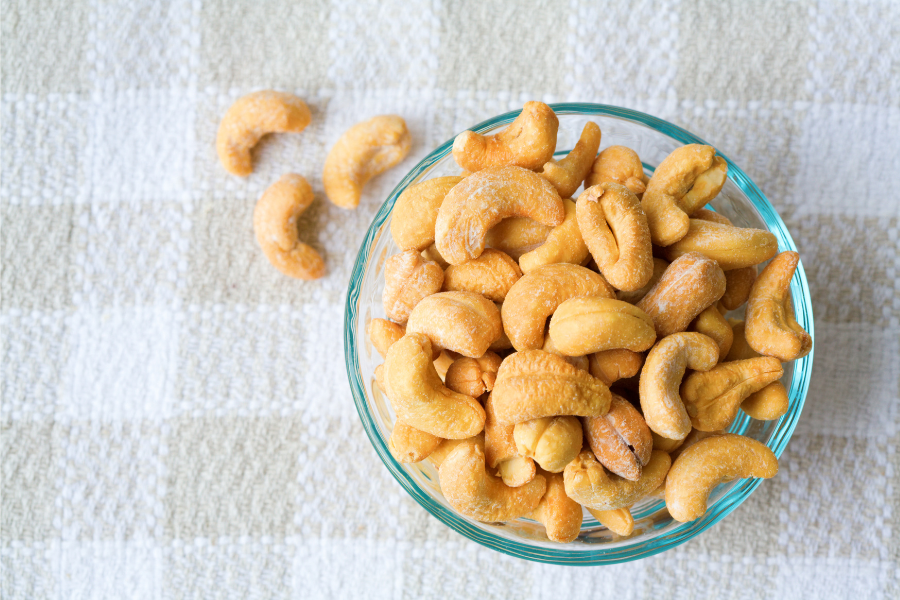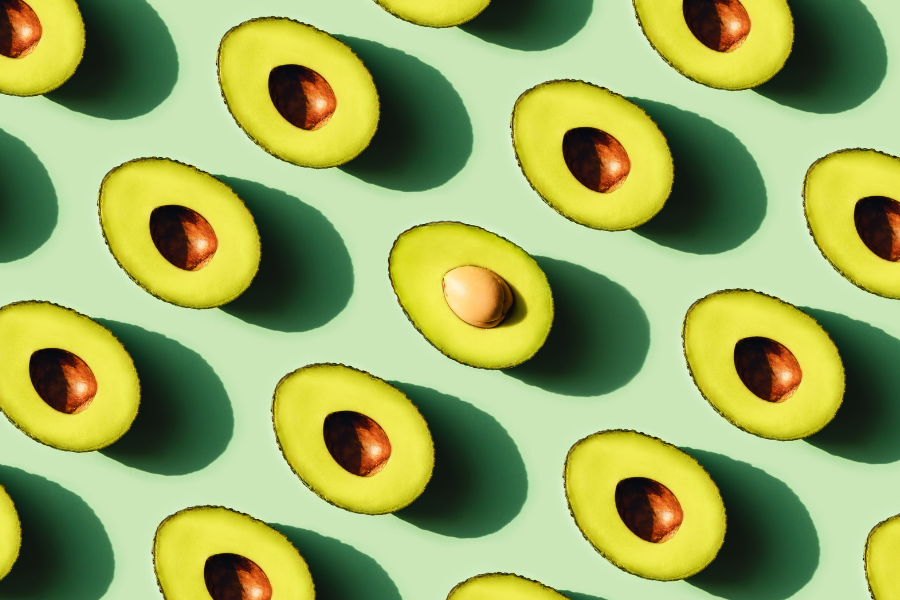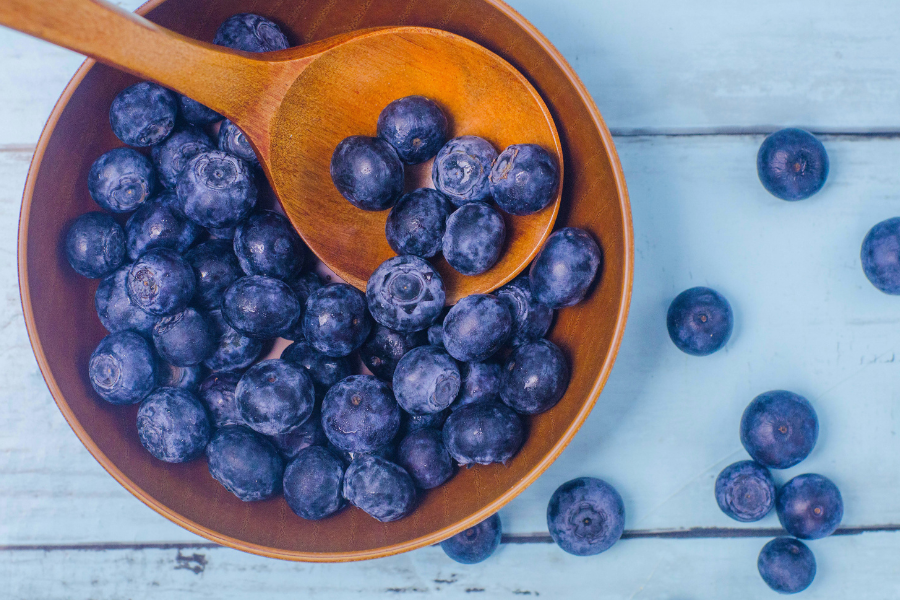Because you are a fabulous dog parent, you have inevitably, at some point, been munching on a tasty snack, like cashews, and been tempted do share. So what is the deal with cashews? Can your pup indeed join the snack fest? Well, cuddle up with the pup as we dive into all things dogs and cashews. Let's go nuts, y'all!
The Great Cashew Debate: Safe or Sorry?
Let's not waste any time, and clear the angst about the food in question. Can dogs actually have cashews? Short answer: Yes, dogs can indeed have cashews, but there are a few things to keep in mind. Here are the dos and don'ts when it comes to sharing cashews with your pup:
Why Cashews Aren't All Bad
You can breathe a sigh of relief knowing that cashews aren't toxic to dogs like some other nuts (we're looking at you, macadamias!). They're actually packed with some pretty nifty nutrients:
- Healthy Fats: Cashews contain “good” fats, which are beneficial in moderation.
- Vitamins & Minerals: These little nuts are rich in vitamins E, K, and minerals like magnesium and zinc, which can be great for your dog's coat and overall health.
- Protein Power: A solid source of protein, cashews can be a nice occasional treat for your pup.
The Catch: Moderation is Key
Here’s the thing, while cashews aren’t inherently harmful, they should definitely be an occasional treat rather than a staple in Rover's diet. Too many cashews can lead to some not-so-fun side effects:
- Tummy Troubles: High-fat content can upset your dog's stomach and potentially lead to pancreatitis.
- Weight Gain: Those healthy fats are still fats, and too many can pack on the puppy pounds.
- Salt & Seasoning: Salted or flavored cashews? A big no-no. Always opt for plain, unsalted versions.
How to Safely Treat Your Dog to Cashews
Alright, so you’re convinced and want to share a few cashews with your fur buddy. Here’s how to do it safely:
- Start Small: Begin with one or two cashews and monitor Fido for any adverse reactions.
- Unsalted & Unseasoned: Stick to plain cashews to avoid unnecessary salt and harmful spices.
- Check for Allergies: Just like humans, dogs can have allergies. Keep an eye out for itching, swelling, or digestive issues.
- Chop 'Em Up: Cashews can be a choking hazard, especially for smaller breeds. Chop them into manageable pieces.
Why Opt for Unsalted?
While we know that some salt (sodium) in moderation is a key mineral for humans, it gets a bit tricky with doggos. When a dog consumes excessive sodium (and an excessive amount for them is a lot lower amount than it is for us), they can become quickly dehydrated and extremely thirsty. In even more extreme cases this can lead to salt poisoning. So, be aware of salt content, and if available, it is always best to opt for unsalted cashew butter.
When to Sound the Alarm
If you've had a dog for any period of time in your life, you have most likely been in a situation where you turn your back for a second, turn back around, and find your dog face-first in a bowl of food you left out. So what happens if that bowl happens to be a big one, and full of cashews?
If your pup accidentally gets into a large stash of cashews, watch for these signs:
- Vomiting or Diarrhea: Common indicators that your dog's tummy isn’t happy.
- Lethargy: An overly sleepy or sluggish dog might be reacting to all that fat.
- Loss of Appetite: If your dog isn’t interested in their regular food, it could be a sign of a digestive issue.
If any of these symptoms pop up, a quick call to your vet is the best course of action.
Fun Alternatives to Cashews
Not all nuts are created equal in the doggy snack world. Here are some other safe and fun options to consider:
- Peanut Butter (xylitol-free!): A classic dog favorite.
- Carrot Sticks: Crunchy, sweet, and low in calories.
- Apple Slices (no seeds): A crisp and refreshing treat.
- Pumpkin Puree: Great for digestion and super tasty.
Wrapping It Up: A Nutty Conclusion
Back to the OG (original) question, in question: can dogs have cashews? The answer is a straightforward yes, they most definitely can, butttt only in moderation. Nuts can be a fine and beneficial addition to a dog's diet, but doggonit you have to proceed with caution. A food like cashews should be viewed as a special snack only given occasionally to your pup.
Now that you’re in the know, feel free to share this nutty knowledge with fellow pet parents. And next time you’re enjoying a handful of cashews, you can confidently toss a couple to your four-legged friend. Just remember, moderation is the name of the game.
Got any cute stories or tips about your dog’s favorite snacks? Drop them in the comments below – we’d love to hear from you!
Happy snacking, and give your pup an extra belly rub from us!
FAQ
How Many Cashews Can a Dog Eat?
Ah, the age-old question that has puzzled many a pet parent: how many cashews can Fido safely enjoy? Picture this—it's a lazy Sunday afternoon, the sun is setting, and you're lounging on the couch with your furry friend. You want to share a treat, but you need to know just how many cashews are appropriate.
The Golden Rule: Less is More
The key to treating your pup responsibly lies in moderation. Generally, it’s recommended to keep the cashew count low. Here’s a guideline to consider:
- Small Dogs: For our petite pals, just one or two cashews per week is plenty.
- Medium Dogs: If your dog is a bit bigger, up to three cashews can be a delightful occasional treat.
- Large Dogs: For the larger breeds, four to five cashews once in a while should be the maximum.
Remember, cashews should complement your dog's diet, not replace their regular meals. Keep an eye out for any unusual reactions, and always prioritize their overall health and well-being.
Can Cashews Upset a Dog's Stomach?
Ah, the delicate balance of treating your beloved canine companion without causing any tummy turmoil! While cashews can make for a delightful treat, they aren't without their pitfalls. Cashews are high in fat, which can be quite rich for a dog's digestive system. If given in excess, these creamy nuts can lead to gastrointestinal upset. Symptoms to watch for include vomiting, diarrhea, and general discomfort. The high fat content in cashews can also increase the risk of pancreatitis, a painful and potentially serious condition. Additionally, the texture and size of cashews might pose a choking hazard, particularly for smaller breeds or enthusiastic eaters who don’t chew thoroughly. So, while those puppy eyes might beg for more, it's best to keep cashew treats to a minimum and always be vigilant for any signs of an upset stomach.
Can Dogs Eat Cashew Butter?
Ah, cashew butter—a creamy, dreamy spread that can elevate a simple snack to a divine experience. But can you share this velvety delight with your beloved pup? The answer is both heartening and nuanced. Yes, dogs can enjoy cashew butter, but with the same caveats that apply to whole cashews.
Be Aware of Additives in Cashew Butter
We totally agree with you - cashew butter is smooth, scrumptious, and is perfect to spread on almost any bread, but it is important to remember that many food products today (unfortunately), including cashew butter, are made with additives to make them either "taste better" or last longer on shelves. So before you grab the cashew butter off a shelf in your local market, take a look at the ingredients. Ideally, the only ingredient you see listed is cashews. Try to steer clear of products with salt, sugar, or any preservatives added, and you'll want to especially keep an eye out for xylitol, which is toxic for dogs.
References
1) Tanprasertsuk J, Tate DE, Shmalberg J. Roles of plant-based ingredients and phytonutrients in canine nutrition and health. J Anim Physiol Anim Nutr (Berl). 2022 May;106(3):586-613. doi: 10.1111/jpn.13626. Epub 2021 Sep 8. PMID: 34495560; PMCID: PMC9291198.



